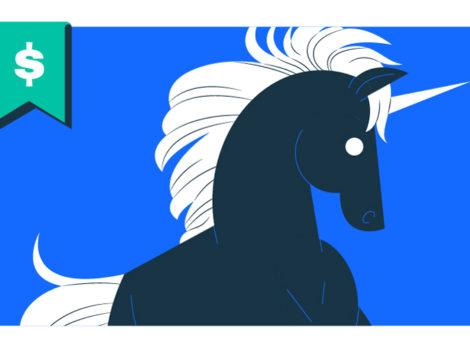Morning Markets: Let’s talk about why tech unicorns are considering direct listing instead of traditional IPOs.
News broke today that Slack may pursue a direct listing instead of an initial public offering (IPO), possibly making the workplace chat tool the second major tech company to choose the more exotic option over the traditional method in two years.
It isn’t hard to find articles describing how direct listings work. Here’s CNBC and Fortune, for example. But what we care about most is why Spotify decided to go public without offering shares or using familiar price-setting mechanisms. Happily, we can quickly recall what the company said at the time.
TechCrunch has the list for us. Here are Spotify’s key reasons for choosing a direct listing over an IPO, per the article:
- List Without Selling Shares
- Liquidity
- Equal Access
- Transparency
- Market-Driven Price Discovery
Some of that sounds fluffy, some of it sounds reasonable. IPOs and direct listing both provide liquidity, even if the former comes with lockup periods. So long as you are taking a solid company public, lockup periods aren’t death sentences.
On the equal access point, TechCrunch notes that a direct listing will ensure that “[b]ankers won’t get preferred access,” which is probably true. But, again, IPOs are tricky to pull off for most companies. Working with bankers before the public is a recipe for preparation and reasonable decisions—both good things in an IPO. Direct listings depend on companies going out that are a bit different. We’ll get back to that.
The transparency point feels like a re-do of the equal access concept; giving everyone the same information also likely isn’t hard if you aren’t working with one party ahead of time to get ready to sell a bloc of shares at a consensus-price.
And the market-price point sounds like padding, as the market always gets to decide the price of things in the end, and Spotify had a reference price when it went public ($132 per share). As Reuters wrote at the time (emphasis added), “[t]he reference price is not an offering price for the shares, nor is it the opening public price for shares of the Swedish technology company…. But the reference price will play a part in Spotify’s eventual pricing.”
I am not convinced that the above set of benefits are worth choosing over going public in the traditional manner. Regular IPOs include a fundraising component and can drum up interest in the company, things that many companies want.
Unless, of course, you didn’t need to raise money or your profile. At which point a direct listing makes more sense. And, as you have already connected, Spotify was the sort of company that didn’t need cash and was already famous. Indeed, turning back to the TechCrunch piece one more time, Spotify noted around the time of its direct listing that it had zero debt and 1.5 billion Euro in cash and equivalents. That’s a lot of money, It also didn’t need someone to hype itself for itself; Spotify made itself well-known.
Slack Or Goose Liver?
Now, back to Slack. Slack doesn’t need more money. Its private-market fundraising has been prodigious. The company has raised frequently, and in rising sums since 2010. For color, Slack raised its $42.8 million Series C in April of 2014; it then raised a $120 million Series D in October of 2014; it’s $160 million Series E landed in April, followed by a $200 million Series F in April fo 2016; then a $250 million Series G in September of 2017; and $427 million in the form of an August 2018 Series H.
Is that a startup or fucking foie gras?
I’d wager that Slack has a boot of cash, giving it no good reason to raise from a normal IPO. It seems IPOs are for poor companies. In the unicorn era, perhaps the biggest flex is to get to IPO-stage with so much cash on hand that you can tell everyone to buzz off and pull a direct listing. I would still raise the money because I’m naturally afraid and risk-averse, but that’s just me.
Recall that we said that companies probably want two things before they directly list: money and fame. Well, Slack is pretty damn well known, but less so than Spotify, I’d wager. Probably by a lot. I wonder if that will impact trading.

Stay up to date with recent funding rounds, acquisitions, and more with the Crunchbase Daily.




![Illustration of a magnet attracting various products. [Dom Guzman]](https://news.crunchbase.com/wp-content/uploads/mergers_and_acquisitions-470x352.jpg)
![Cybersecurity illustration with shield, books, laptop. [Dom Guzman]](https://news.crunchbase.com/wp-content/uploads/Cybersecurity_Shield-470x352.jpg)
![Illustration of a guy watering plants with a blocked hose - Global [Dom Guzman]](https://news.crunchbase.com/wp-content/uploads/quarterly-global-3-300x168.jpg)
67.1K Followers